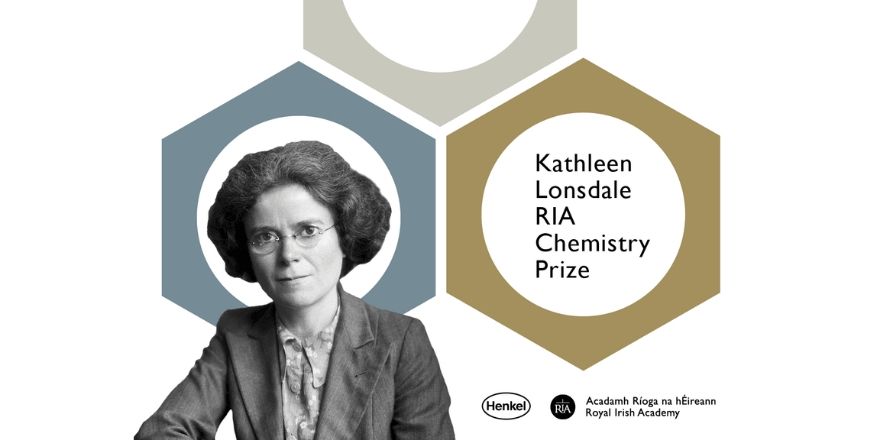
Dr Yikai Xu awarded the Kathleen Lonsdale RIA Chemistry Prize
06 July 2020The Belfast based PhD student was recognised for his revolutionary work in nanomaterials science in a virtual ceremony on Friday 3 July 2020.
Dr Yikai Xu has won this year’s Kathleen Lonsdale Chemistry Prize. The Henkel sponsored prize is awarded each year by the Royal Irish Academy for the most outstanding Irish PhD thesis in the general area of the chemical sciences. As winner Dr Xu was also put forward by the Royal Irish Academy to represent Ireland in the prestigious IUPAC-Solvay International Award for Young Chemists competition
Dr Xu is a recent PhD graduate of the School of Chemistry and Chemical Engineering at Queen’s University Belfast. Yikai Xu’s winning PhD research yielded two ‘platform technologies’ which is a huge step forward in bringing nanomaterials from the laboratory to having real-life applications. Nanomaterials are chemical substances or materials that are manufactured at an incredibly small scale – down to 10,000 times smaller than the diameter of a human hair.
The first platform technology he developed allows nano particles to be assembled at the interface between oil and water into a bulkier form which is therefore easier to see and manipulate.
“We are using nano particles as building blocks, as lego basically, and we’re assembling them together at a water and oil interface. What this does is it makes them into a big thing, but they are not all fused together, so it’s a bulk but it’s still nanomaterial. And by manipulating the morphology you can have it flat as a film or you can have it curled up into a ball so it becomes a 3D structure.”
He went on to develop a way to anchor the bulk nanomaterial so that it can be handled and shaped.
“Because right now it’s at the liquid (oil and water) interface, so it’s a liquid, so it’s not that easy to manipulate, what we want is a bulk thing that you can have in your hands, that we can throw around, and so the next thing was to turn that into a polymer and nano material hybrid, so basically we were anchoring these particles that we have assembled at the interface onto a polymer support. And again this is a general process, so it works for different kinds of nanomaterials that we have.”
Such technologies give nanomaterials the potential for new applications such as detecting trace amounts of drugs or explosives on different surfaces such as people hands, or finding and neutralising harmful or cancer-causing chemicals in water. By using different types of nanoparticles as building blocks, these bulk nanomaterials can be built into antimicrobial surfaces, flexible conducting devices and supercapacitors.
Dr Xu described his surprise at being selected for the Kathleen Lonsdale RIA Chemistry Prize:
“I first heard of the prize in my second year of my PhD and set myself a goal to work super hard and to see if I could actually get this. So, when I did it was like a dream come true.”
The prize includes an award of €2,000 which is generously supported by Henkel. Dr Hugh Fay of Henkel Ireland commented
“We in Henkel Ireland are delighted to continue our association with the Kathleen Lonsdale RIA Chemistry Prize. The Research environment in Ireland is very important to us and this is a meaningful way to give support and encouragement to young researchers.”
Yikai Xu is not the first winner of the prize to have come to Ireland from China. He said this recognition by the Royal Irish Academy is encouraging to international students who have come to Ireland:
“It did mean a lot more to me, not just because it’s a really great personal achievement, but also because it sets a really great example for us as international students coming over to Ireland and what we can achieve. It shows that as long as you actually put the work in and if you have the chemistry, your game will travel, and Ireland will recognise that, and I think that is really great.”
Watch the ceremony



